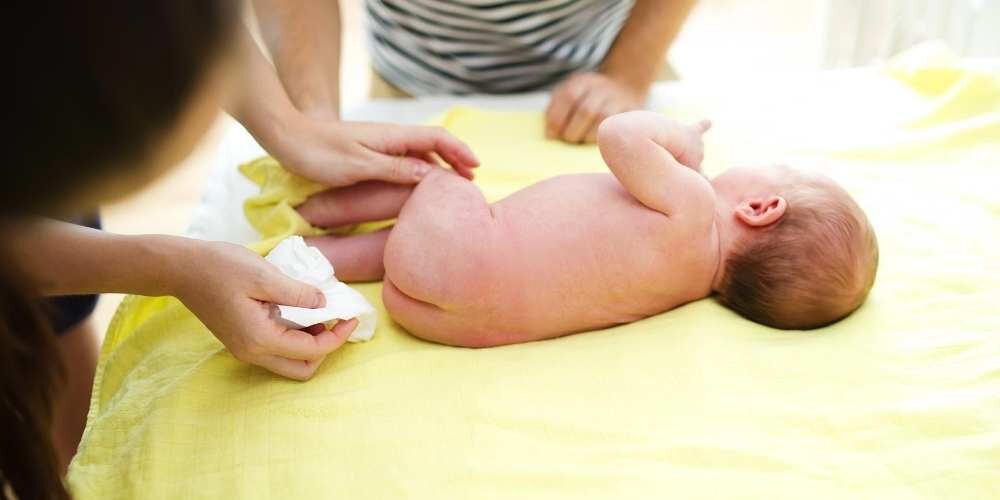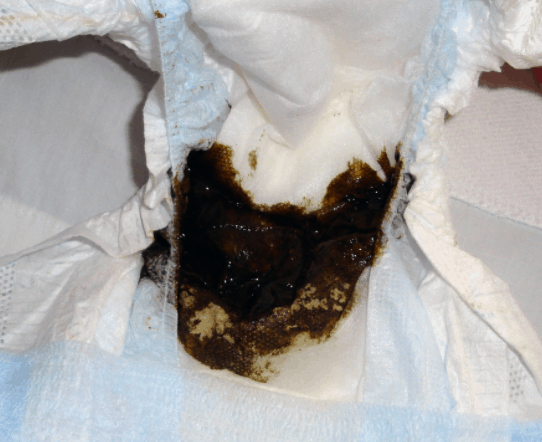How Often Should A Breastfed Baby Poop?
Let’s talk baby poop!
How often a baby poops tells you if they’re getting enough to eat while breastfeeding.
It’s VERY important to keep track of the frequency, especially in the first 6 weeks.
Tracking your breastfed baby’s poop frequency will help you make sure breastfeeding is going well.
We’re going to show you EXACTLY how many dirty diaper changes to expect while breastfeeding.
Without further adieu, let’s demystify that diaper output!
(this post may contain affiliate links)
Disclaimer: If you’re concerned about your baby’s poop frequency, consult with your healthcare provider right away.
It’s a GREAT idea to take a simple and affordable breastfeeding class. Breastfeeding is something you need to LEARN to do. The Ultimate Breastfeeding Class is on-demand and perfect for new moms.
How big should baby’s poop be to count as one stool?
According to the authors of The Womanly Art of Breastfeeding, to count a diaper as “dirty,” the poop should be “at least as big as the ‘okay’ circle you make with your thumb and forefinger.” (or the size of a US quarter or larger)
Your baby’s first poop
Your breastfed baby’s first poop should arrive sometime in the first 24 hours after birth. It’s called “meconium” and will be black to dark-green, thick & sticky. As the baby drinks your colostrum the first few days, it’ll clear the meconium out of your baby’s system and transition the poop to a lighter color and looser texture.
PRO-TIP: You can apply a layer or petroleum jelly or olive oil to your baby’s skin before they do their first poop to act as a barrier on their skin to make the meconium easier to clean up!
Poop frequency in the first week
Your baby will typically have one dirty diaper for each day of life (1 stool in the first 24 hours, 2 in the 2nd 24 hours, etc) and it will level out at 3+ diapers on day 3.
Plenty of poops by day 4 or 5 show that breastfeeding is going well!
Some breastfed babies poop every time they nurse, or even more often – this is normal too. There is a wide range of normal, but you should make sure they’re stooling the minimum amount.
The Poop Should Transition to Yellow
After the first poop, if breastfeeding is going well, their poop will begin to transition through a sequence of colors as they drink more and more breast milk. Your baby’s poop will go from black to dark green to khaki green to greenish yellow and finally to a yellow/mustardy color by the fourth or fifth day. The poop will gradually become softer and more runny and probably have a loose/seedy/mushy/curdy texture.
It should be soft and easy to pass and the odor should have a mild smell.
If your baby’s poop doesn’t transition in color in the first 4-5 days, reach out to your healthcare provider right away.
Expect frequent poops daily
Your baby should continue to have frequent, daily poops through the first six weeks. The frequency of poop may vary from day to day and that’s normal, but just make sure they’re having a minimum of 3 per day.
After 6 weeks, poop patterns may change
After 6 weeks, you may notice your baby starts pooping less frequently or may even skip a day or two between stools. This should not alarm you and is perfectly normal as long as your baby is continuing to gain weight well, is having enough wet diapers, and is generally happy and content.
Pooping after solid food introduction
When your baby starts to eat solid food (around 6 months old), their stools will become more brown and smelly and may become more firm.
This is the time when constipation becomes more common as their digestive system learns to cope with the new foods.
PRO-TIP: It’s normal for your baby to grunt, strain, for their face to turn red and even for them to cry when passing a poop. Infants can’t sit up to pass their stools and so they’re working against gravity. As long as the poop comes out soft, you can rest easy knowing that they’re not constipated. For breastfed babies, constipation is rare, and involves hard and dry stools.
What if my newborn isn't pooping?
If your baby isn’t pooping the most likely reason is that they’re not getting enough breast milk. This requires immediate attention. Reach out to your healthcare provider right away and ideally schedule an appointment with an IBCLC (International Board Certified Lactation Consultant.)
Our 3 Fav Breastfeeding Products
🌛 1. This nursing bra is the absolute BEST for breastfeeding at night. It’s super comfortable and made of the softest material ever. You’ll want to wear it forever to sleep in, even after you’re done breastfeeding.
💪 2. Boost supply and tone up postpartum. Milk Dust is protein powder made just for breastfeeding moms. It nourishes and tones postpartum bodies (and contains milk boosting ingredients too!) Get 10% off Milk Dust using the code MILKOLOGY at checkout
🤱 3. If your nipples are sore, these are an absolute lifesaver. They’re super cheap, can be worn for multiple days (perfect when you’re trying to get a good latch), and are soooo soothing.






